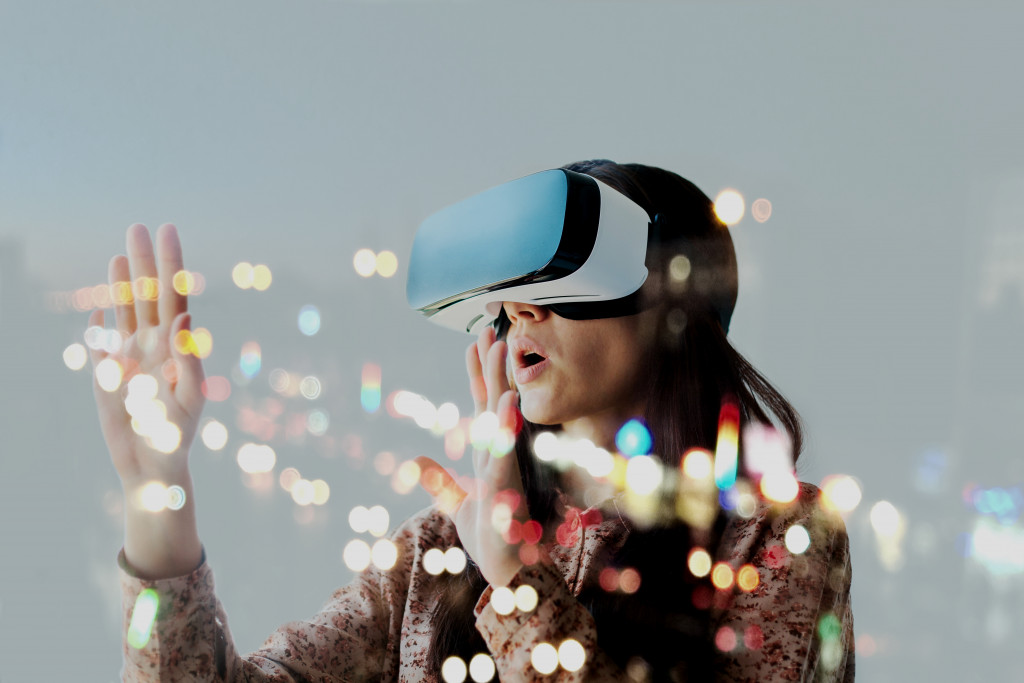The pandemic has forced the entertainment industry to take a backtrack. Everyone and everything has been severely impacted. Events were canceled. There were closures of cinemas and other entertainment venues.
The video gaming and online video streaming sectors, however, flourished. The growing need for internet services made platforms like YouTube, Netflix, Amazon Prime, and Disney+Hotstar witness drastic growth. According to the PwC’s five-year projection report, Global Entertainment and Media Outlook 2021-2025, the $2 trillion entertainment and media industry will continue to grow at an average rate of 5% until 2025.
The record-breaking increase in consumption of digital content from mobile apps, gaming, end-user generated content and streaming caused many to adopt mobile applications to access different entertainment platforms. However, mobile technology is not the only technology that’s revolutionizing the industry.
Technologies Changing the Entertainment Industry
The entertainment industry is consistently being reshaped by consumers. As they move towards the use of multi-platform and device applications, the focal point has shifted to modern devices, tech innovation, and content. A new way of content delivery is feeding the advancement in automated computing processors, cameras, smartphones, music systems, and smart TVs. In today’s article, you’ll learn more about these advancements and how they are shaping the entertainment and media industry.
Cloud Security Management

Cyberattacks aren’t limited to financial and government institutions. They have also struck the entertainment industry. According to PwC, cyber threats have far-reaching consequences for entertainment and media organizations such as reduced profitability, damaged reputations, and weakened business models.
To combat cyber threats, the entertainment industry takes advantage of cloud security management, which authenticates and eliminates illegal online streaming. It monitors IT rules, access control, customer data, and production networks.
In the following years, more organizations in the entertainment industry will migrate to the cloud, adding in data encryption and cloud workload to increase cyber protection.
Wearable Technology
The advent of wearable app development has simplified the delivery of content. It ensures that the whole story is delivered into the trimmed-down format without compromising quality. Considering this, wearable technology is set to create more immersive experiences that the industry provides. It enables users to play virtual reality games, listen to music, and watch augmented reality videos.
Augmented Reality and Virtual Reality
Speaking of augmented reality (AR), it is one of the most promising technology, along with virtual reality (VR), that is enhancing entertainment. AR and VR boost user experience, especially in sports training and video gaming. Indoor golf simulators, for example, allow users to experience playing golf even if they’re not on the course. They can train for golf even when just at home.
In video gaming, players experience an immersive first-person perspective of the games they play. They use devices such as VR headsets, hand controllers, sensor-equipped gloves, and other VR gaming technology.
Tech giants such as Facebook and Google have already dipped their hands in the AR and VR development space, and are already bringing mobility and accessibility to their customers through the two technologies.
The Internet-of-Things
Video streaming giants such as Netflix and Amazon Prime can attribute their success to the Internet-of-Things (IoT). Using the technology, they were able to improve personalized content, create impressive content, and conduct targeted advertising campaigns. All of this enabled them to expand their reach. Today, all video streaming platforms are able to reach a global audience because of IoT.
Blockchain Technology
Blockchain is a popular cryptocurrency financial service company. However, apart from it is blockchain technology. It modernizes systems for pricing, royalty payments, and revenue sharing. Because of this, it optimizes payment models in the industry.
Facial Recognition and Artificial Intelligence
Artificial intelligence (AI) is a technology that can be used with almost any other technology in the market. In the entertainment industry, however, it is more recognizable in use with facial recognition. AI and facial recognition allow organizations to get user data in real-time based on recognized and analyzed behaviors.
AI is also present in realistic visual effects and high-dimensional animation. It is also used to provide rapid delivery of content on social media and streaming platforms. AI also facilitates extensive use of VR and AR and personalized user experience. It also enhances digital marketing and advertising.
AI is also expected to solve specific issues in content enhancement and delivery in the entertainment industry. AI can help provide a better translation of movie subtitles that are increasingly used in video streaming services.
Expect More
The pandemic has devastated the entertainment industry. Still, there are lots of opportunities to improve it. One of its roles anyway is to connect, educate, inform, and foremost, entertain people. Considering this, its innovation is consumer-driven, so everyone can expect more advancements in the years to come.












